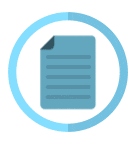An error analysis of using auxiliary verb in Islamic mathematical complex questions made by mathematics department students
Keywords:
Islamic Mathematical complex, Mathematics Department StudentsAbstract
The purpose of this study is to describe students’ error in applying auxiliary verb in writing Islamic Mathematical complex Questions. The participants were nine Mathematics department students of STKIP Al Hikmah who took English for writing course on the third semester. One of the purposes of this course is the students could compose a good Islamic Mathematical complex Questions using a proper grammar. To reach the purpose of this course, the students are equipped with compilation of English mathematical complex questions in Bahasa. For passing the course as the project they must create minimum 50 questions of Islamic Mathematics complex Questions based on the topic in VIII Grade of Junior High School. The study was conducted in descriptive quantitative research design. The data were taken from students’ work composing Islamic Mathematics complex Questions. Auxiliary verb which are investigated on this study are ‘am, is, are, was, were, have, has, and had’. The result of the study proves that most students were not capable in applying auxiliary verbs in their writing, forget which the appropriate auxiliary and still need to improve their ability to divine the appropriate auxiliary verbs. Furthermore, it proves that they are able to create Mathematical complex with Islamic Integration.
Downloads
Published
How to Cite
Issue
Section
License
1. Copyright of this journal is possession of Editorial Board and Journal Manager, by the knowledge of author, whilst the moral right of the publication belongs to the author.
2. Legal formal aspect of journal publication accessibility refers to Creative Commons Atribution-ShareAlike (CC BY-SA), implies that this license lets others remix, adapt, and build upon your work even for commercial purposes, as long as they credit you and license their new creations under the identical terms. This license is often compared to “copyleft” free and open source software licenses.
3. Every publications (printed/electronic) are open access for educational purposes, research, and library. Other that the aims mentioned above, editorial board is not responsible for copyright violation















